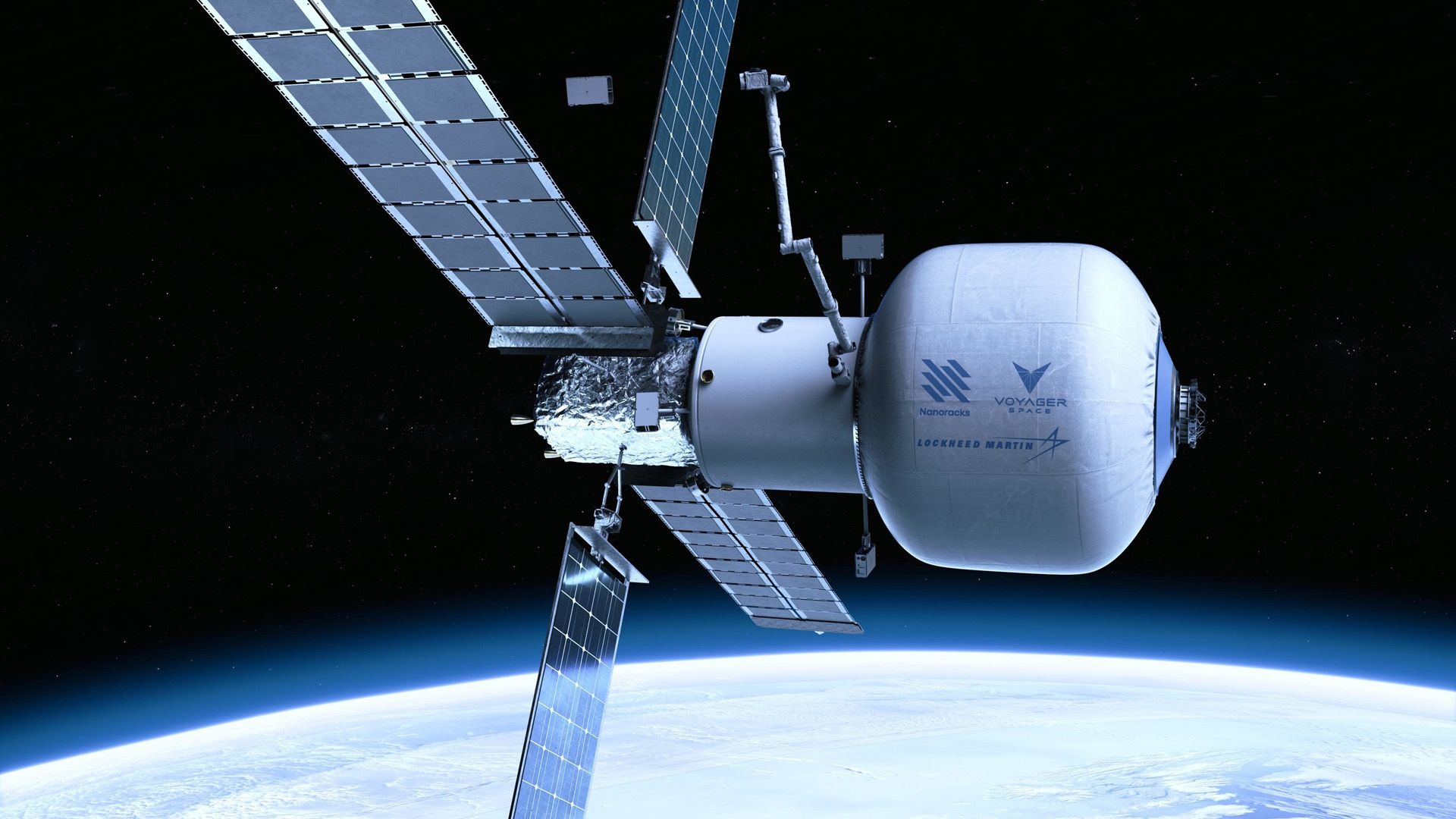Hilton hotels will design astronaut suites on private Starlab space station
Hilton wants to 'reimagine the human experience in space, making extended stays more comfortable.'

Breaking space news, the latest updates on rocket launches, skywatching events and more!
You are now subscribed
Your newsletter sign-up was successful
Want to add more newsletters?

Delivered daily
Daily Newsletter
Breaking space news, the latest updates on rocket launches, skywatching events and more!

Once a month
Watch This Space
Sign up to our monthly entertainment newsletter to keep up with all our coverage of the latest sci-fi and space movies, tv shows, games and books.

Once a week
Night Sky This Week
Discover this week's must-see night sky events, moon phases, and stunning astrophotos. Sign up for our skywatching newsletter and explore the universe with us!

Twice a month
Strange New Words
Space.com's Sci-Fi Reader's Club. Read a sci-fi short story every month and join a virtual community of fellow science fiction fans!
Hilton is ready to take its hospitality off-planet.
The hotel giant will move into a future Earth-orbiting space station called Starlab along with Nanoracks, Voyager Space and Lockheed Martin, who first announced the orbiting complex in 2021.
"Hilton will bring the company's renowned hospitality expertise and experience to support the design and development of crew suites aboard Starlab, helping to reimagine the human experience in space, making extended stays more comfortable," officials said in a joint statement Tuesday (Sept. 20).
Starlab is one of a set of private space stations that NASA hopes will replace the International Space Station in the coming decade. Although ISS operations on NASA's side were recently extended six years to 2030, the agency has been planning for successor space stations — which it says will be privately run.
Related: NASA looks to private outposts to build on International Space Station's legacy
Voyager and Nanoracks received $160 million in early-stage NASA funding in December 2021. The contract is part of approximately $416 million in design contracts NASA divided almost evenly among three U.S. companies leading each project: Blue Origin ($130 million), Nanoracks LLC ($160 million) and Northrop Grumman Systems Corp. ($125.6 million).
Critics have charged that the agency is not doing enough to move forward with the space stations quickly enough, and that they may not be ready in time when the ISS program concludes around 2030, if all goes to plan. (Major ISS partner Russia announced it would withdraw from the partnership after 2024, to pursue its own Russian space station.)
Breaking space news, the latest updates on rocket launches, skywatching events and more!
In pictures: Russia wants to build its own space station, as early as 2028
Once ready, Starlab should have room to host up to four astronauts at a time, along with a laboratory called George Washington Carver Science Park. (Nanoracks has been managing science on the U.S. side of the ISS for more than a decade.)
In the space world, Hilton is best known for launching the first cookie to be baked in space under its brand DoubleTree. The entity later hinted the Smithsonian may display at least one of the chocolate trip cookies that returned to Earth in January 2020.
Going forward, Hilton and Voyager plan to work together on the architecture and design of Starlab. The private space station will include hospitality suites, sleeping arrangements, and communal areas for visiting astronauts. Further in the future, the two teams plan to create a "ground-to-space astronaut experience," along with branding opportunities and efforts in tourism, education and commercial realms.
Related: Hilton DoubleTree cookie dough launches with zero G oven for space station
The announcement, made during the 2022 International Astronautical Congress in Paris, was released among a suite of other work from the three companies involved in Starlab.
A new terrestrial analog of Starlab's science park G will be located at Ohio State in Columbus, Ohio, Voyager Space announced Monday (Sept. 19). The collaboration also announced memoranda of understanding (MOUs) to open up space opportunities with the Colombian Space Agency, El Salvador Aerospace Institute, the Mexican Space Agency, the Guatemalan Association of Space Sciences and Engineering, and the Costa Rican startup Orbital Space Technologies.
Follow Elizabeth Howell on Twitter @howellspace. Follow us on Twitter @Spacedotcom or Facebook.

Elizabeth Howell (she/her), Ph.D., was a staff writer in the spaceflight channel between 2022 and 2024 specializing in Canadian space news. She was contributing writer for Space.com for 10 years from 2012 to 2024. Elizabeth's reporting includes multiple exclusives with the White House, leading world coverage about a lost-and-found space tomato on the International Space Station, witnessing five human spaceflight launches on two continents, flying parabolic, working inside a spacesuit, and participating in a simulated Mars mission. Her latest book, "Why Am I Taller?" (ECW Press, 2022) is co-written with astronaut Dave Williams.
